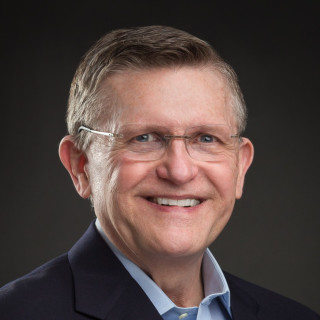At least 56% of clinicians plan to attend medical conferences in person this year, according to a recent poll on the Doximity network.
The preference for in-person attendance marks a striking reversal from sentiments clinicians held as recently as September 2021. A Doximity poll conducted then revealed that only 28% of clinicians planned to attend a conference in person. A likely explanation for this shift is the lifting of COVID-19 restrictions, following reduced case counts and expanded eligibility of vaccine boosters.
“With effective vaccines, better treatment options, and decreased severity of symptoms from variants of the virus, more people are comfortable with going back to normal and having face-to-face interactions,” said Dr. Jan Kaminski, a colon and rectal surgeon in Chicago.
Among the 4,174 clinicians who participated in the recent poll — including physicians, students, and APPs — 56% plan to attend conferences in person, 19% plan to attend virtually, and 25% do not plan to attend at all.
Preference for attending in person varied by age, with younger clinicians more willing than older clinicians. Nearly three-quarters of clinicians under 29 plan to go in person, compared with less than half of clinicians in their 60s and less than a third age 70 and older.
The age-based trend may be a reflection of current conference offerings and their professional benefits. Medical conferences afford clinicians an opportunity to network and travel, presumably more enticing for clinicians developing their career than for those in the later stages of their career. Dr. Brian Sullivan, orthopaedic trauma chief resident at Johns Hopkins, noted, “Conferences are a chance to break from your busy clinical schedule and have fun meeting with your peers to share ideas and simply socialize. The social aspects of conferences are some of the most important — seeing old mentors and friends, meeting new colleagues, and networking for future job opportunities.”
Other benefits of conferences, such as CME and learning about the latest research and treatments, are widely available online due to formatting changes during the pandemic. “Now that the meetings have been virtual I have been able to attend more at a lesser cost and rack up almost 300 CME hours in two years," neurologist Dr. Maria Hubbard commented.
Since the early months of the pandemic, fully virtual or hybrid conferences have given clinicians access to conference content from the comfort of home. In light of this opportunity, radiologist Dr. David Kay asked, “Why schlep around the country when I can watch it all from my office?” He also expanded on the high cost of conferences. “I think all conferences are way too expensive as it is. … These prices need to be coming down. And with largely virtual conferences you wouldn’t necessarily need to hold them at the nicest hotels in the largest ballrooms in the most expensive cities.”
The association between age and in-person conference attendance could also be a byproduct of potential safety risks posed by the ongoing pandemic. Older people in general are more subject to serious illness due to COVID-19, and so may be less motivated to sign up for populous events. Many also choose to remain at home out of concern for loved ones who are especially vulnerable to COVID-19. Dr. Mary Tarail, a psychiatrist, noted this as a major decision factor: “If my spouse wasn’t immunosuppressed, I’d probably go in person.”
Despite COVID-19 safety concerns, logistics, and cost, the full experience of going to conferences in person seems to be a powerful pull for many attendees. "No matter how [hard] I try to do a virtual conference, I don't feel I'm as engaged and learn as much as in person,” said Dr. Kaminski. “There are always distractions: emails, phones, kids, family, work, etc. When you are away on your own specifically for a conference, it seems easier to concentrate and ‘get away’ from your normal routine.”
A greater percentage of men (58%) are also planning to go to conferences in person than women (51%). Gender differences in COVID-19 attitudes and behavior has been a focus for many studies throughout the pandemic. Women have shown to be more supportive of restriction measures, and more compliant with these measures than men.
For physicians, there are also significant differences depending on specialty. More surgeons (65%) are planning to attend in person than specialists (56%) and primary care physicians (49%). The type of content at conferences varies considerably by specialty as well, which may translate into certain groups benefiting more from an in-person format than others. For example, attempting to convert wet labs and some workshops to a virtual format may be impractical.
Among surgical specialties, neurosurgeons (80%) appear most ready to return to in-person conferences. The majority of specialists in dermatology (79%), radiation oncology (73%), and cardiologists (66%) also seem to be highly motivated, underscoring the advantages of hands-on learning and face-to-face networking in those fields.
Of note, several specialties most impacted by COVID-19 such as infectious disease (68%), pulmonology (59%), and emergency medicine (54%) have a majority population ready to return to in-person conferences. In November, when discussing the pros and cons of virtual conferences, infectious disease specialist Dr. William Valenti shared that in working “on global issues like HIV or COVID-19, you have to think global, from 10 thousand feet up. The international physical conference conveys that sort of experience. … it is a challenge to get that global experience when you’re sitting in front of a screen.”
Most of the PA community is also planning to attend medical conferences in person at 58.5%. In contrast, slightly less than half of NPs and CRNAs plan to attend in person at 49.7%.
With the medical community somewhat divided on its preference for in-person conferences versus virtual conferences, offering just one or the other option might not sit well with audiences.
“I had signed up for a conference, expecting a hybrid venue again, but they are only doing it in person, so I will likely be requesting my refund,” commented psychiatrist Dr. Michael Friedman.
The hybrid format has been in place for many conferences during the pandemic, but whether it will be the norm moving forward remains to be seen. Regardless, clinicians will be waiting to see how virtual access to conferences continues to evolve, including those anxiously awaiting the chance to network with colleagues in person.
Image by DrAfter123 / GettyImages





